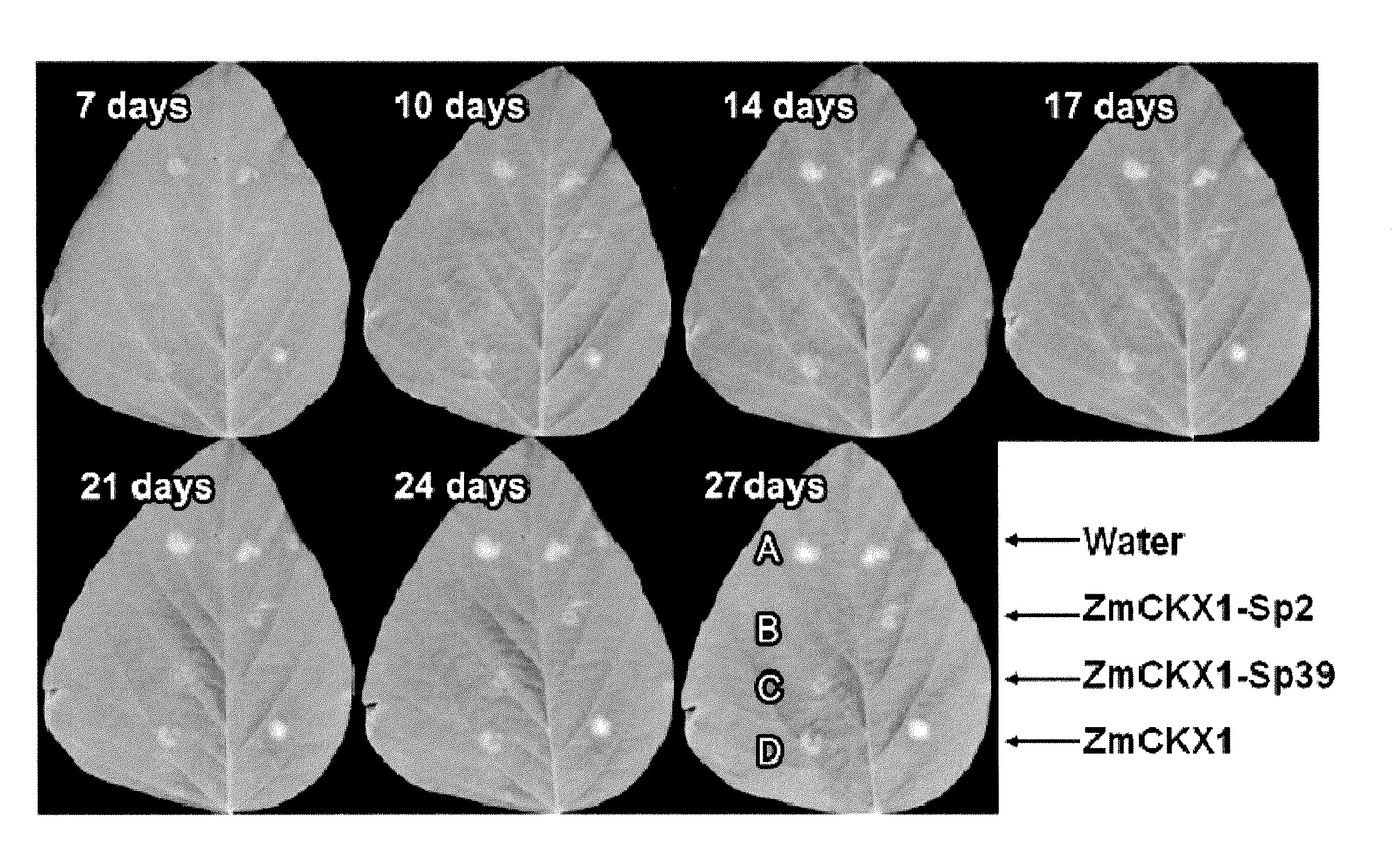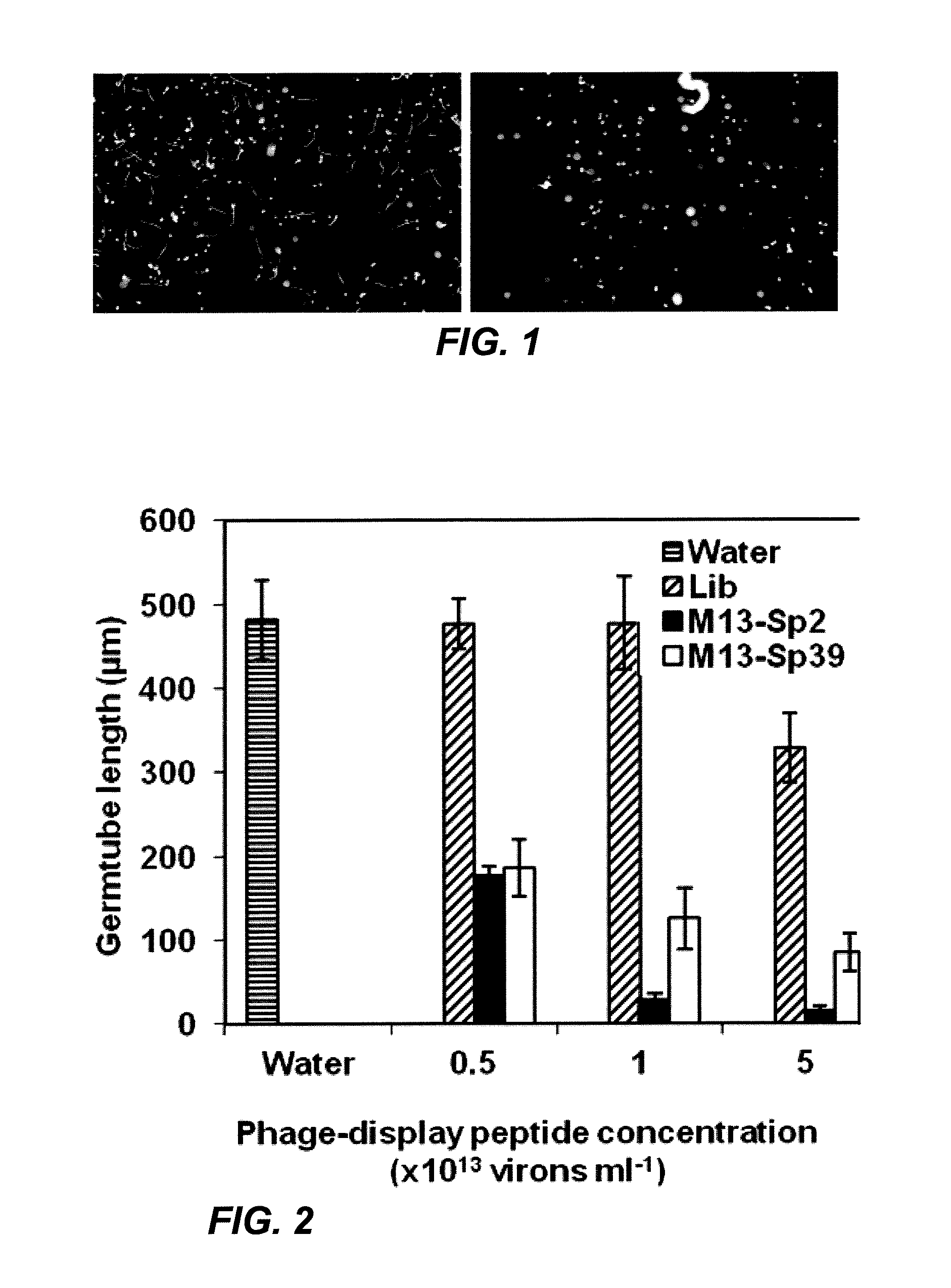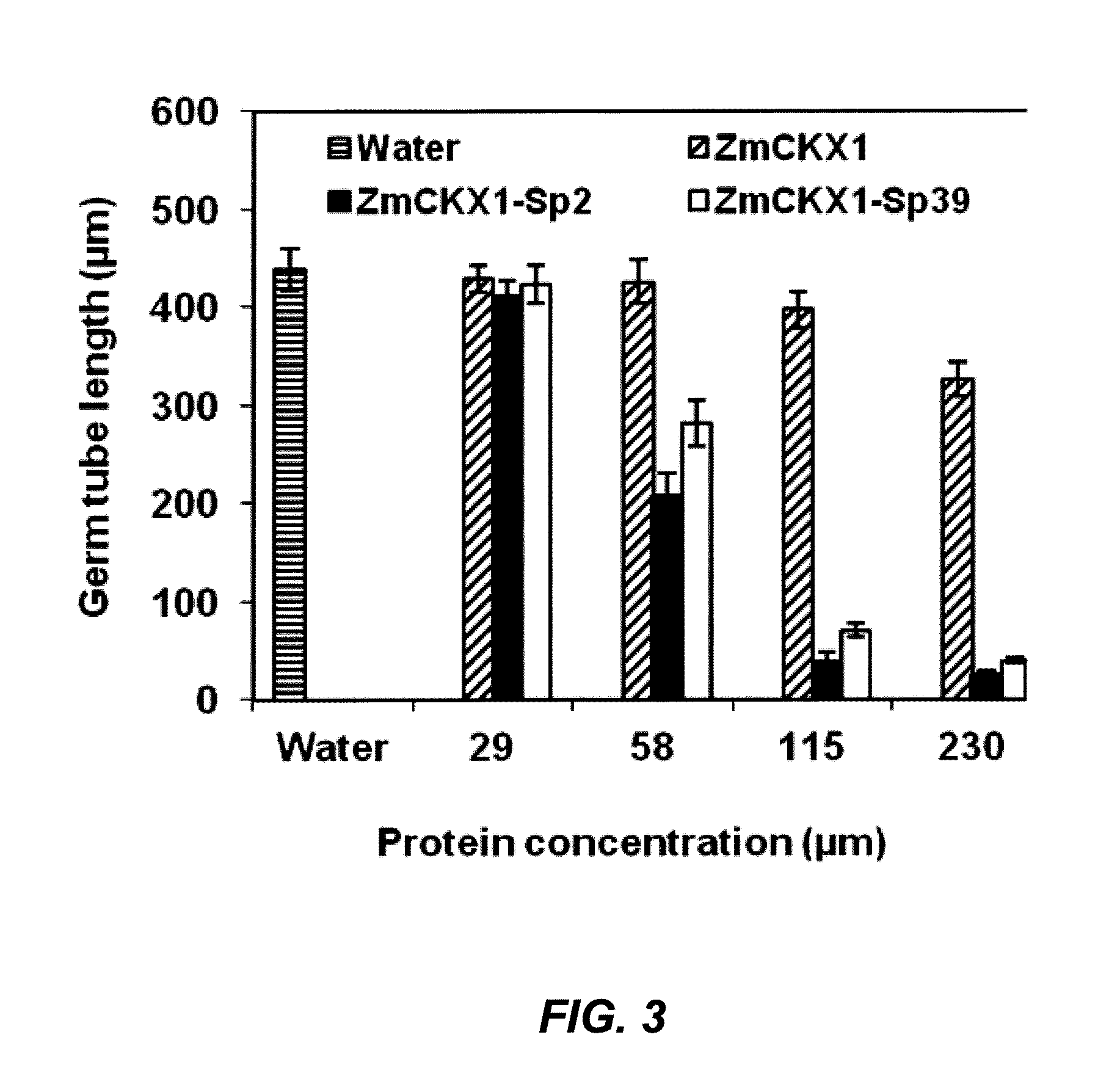Defense peptides against fungal infection and method of their use
a technology of defense peptides and fungal infections, applied in the field of antifungal peptides, can solve the problems of difficult rapid identification, diagnosis, and mitigation of fungal infection, and achieve the effect of facilitating the expression of defense peptides
- Summary
- Abstract
- Description
- Claims
- Application Information
AI Technical Summary
Benefits of technology
Problems solved by technology
Method used
Image
Examples
example 1
Materials and Methods for Selection and Characterization of Peptides Using Phage Display Technology
1. Fungal Materials and Inoculum.
[0072]Soybean leaves with rust pustules were collected from plants grown either in the field or in greenhouses at the North Florida Research and Education Center (University of Florida) located at Quincy, Fla., and shipped to the Division of Plant Sciences (University of Missouri). There, the infected leaves were handled in the laboratory according to APHIS regulations (APHIS permit 71988). Urediniospores were vacuumed from pustules on leaves using a Cyclone Surface Sampler (Burkard Mfg. Co. Ltd., Rickmansworth, England). These spores were used for initial evaluation of the inhibitory potential of affinity-selected, phage-display peptide clones.
[0073]Once soybean rust appeared in southeastern Missouri in 2008, a population of urediniospores was collected from all P. pachyrhizi pustules of a single soybean leaf using a Cyclone Surface Sampler. This uredi...
example 2
Phage-Display Peptide Selection and Assessment of Bioactivity
[0093]Phage clones from an M13 phage-display library that displayed combinatorial peptides with affinity for germinated urediniospores were isolated. The bioactivity of the enriched phage populations derived from three rounds of selection was then assessed. Out of 250 phage-display peptide clones, 20 peptides were found to reduce urediniospore germ tube growth by 50% or more in at least one of three in vitro trials, at 1013 virions ml−1 (FIG. 1). These bioactive clones and sequenced, and 11 unique inserted peptide sequences (SEQ ID. Nos. 1-11) were identified in these clones, as shown in Table 1. Each of the 11 peptide sequences was re-tested to determine the relative effectiveness of each expressed peptide sequence as germ tube inhibitors. In tests against field-collected urediniospores, phage-display peptide clones inhibited germ tube growth in 30 to 80% of the tests (Table 1). Variation in germ tube inhibition was not s...
example 3
Urediniospore Germ Tube Growth in the Presence of Phage-Display Peptides or ZmCKX1-Peptides
[0095]The capabilities of the two most consistently active phage-display peptides (M13-Sp2 and M13-Sp39) to inhibit germ tube growth were further characterized. After 8 h incubation, the average germ tube length in water was 482 μm. Both clones inhibited growth during this time period in a concentration-dependent fashion (FIG. 2). In comparison to growth in water, the average length of urediniospore germ tubes was reduced by 62-64% in the presence of either phage-display peptide clone at a concentration of 5×1012 virions ml−1. Germ tube inhibition increased with higher virion concentrations to a maximum of 97% and 82% for M13-Sp2 and M13-Sp39, respectively, at a concentration of 5×1013 virions ml−1. Germ tube growth in the presence of the unselected phage-display peptide library was not inhibited in comparison to growth in water (13 virions ml−1, where growth inhibition was 32%.
[0096]When pept...
PUM
| Property | Measurement | Unit |
|---|---|---|
| Electrical resistance | aaaaa | aaaaa |
Abstract
Description
Claims
Application Information
 Login to View More
Login to View More - R&D
- Intellectual Property
- Life Sciences
- Materials
- Tech Scout
- Unparalleled Data Quality
- Higher Quality Content
- 60% Fewer Hallucinations
Browse by: Latest US Patents, China's latest patents, Technical Efficacy Thesaurus, Application Domain, Technology Topic, Popular Technical Reports.
© 2025 PatSnap. All rights reserved.Legal|Privacy policy|Modern Slavery Act Transparency Statement|Sitemap|About US| Contact US: help@patsnap.com



